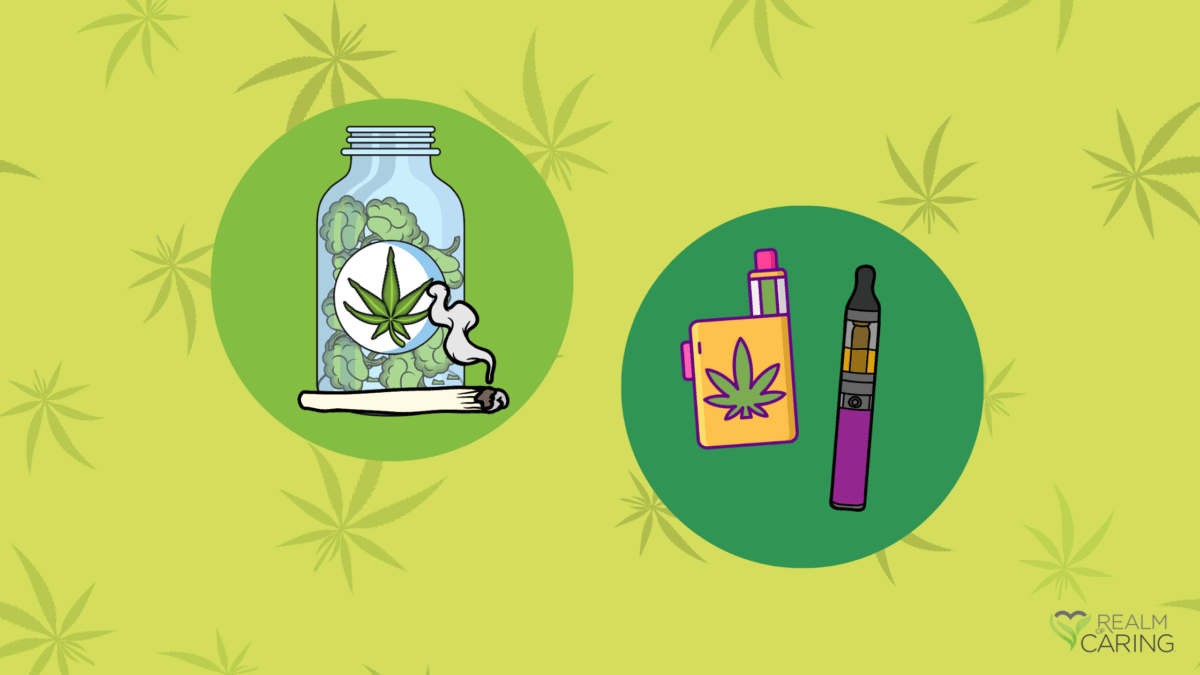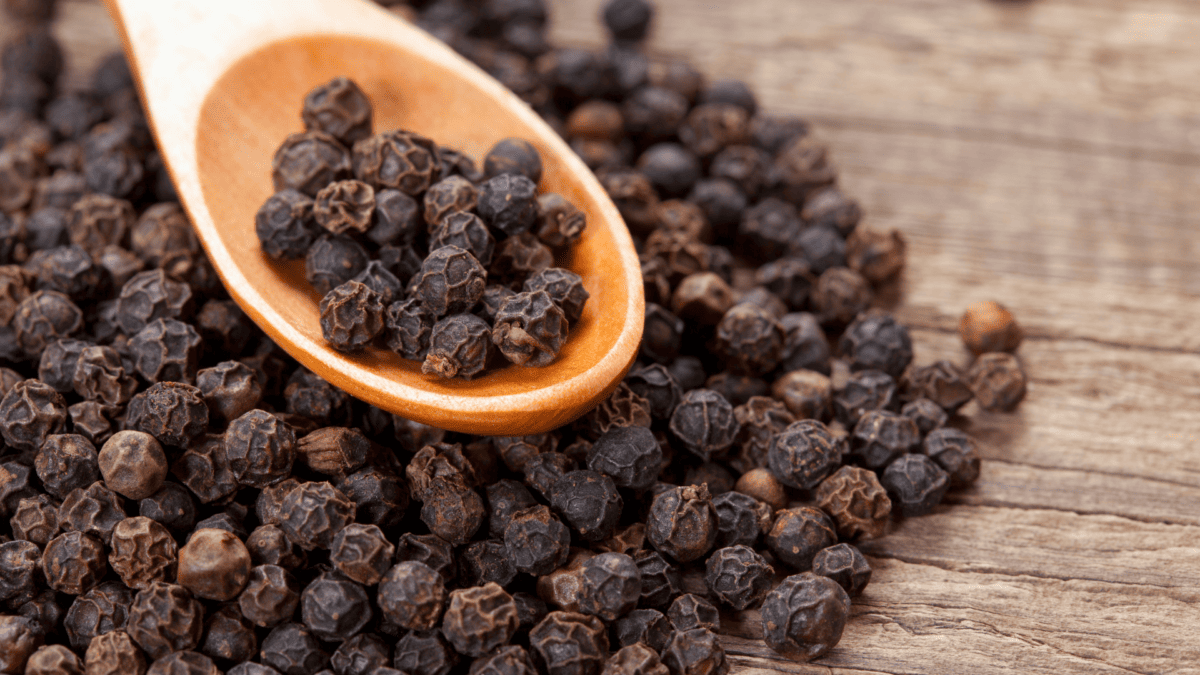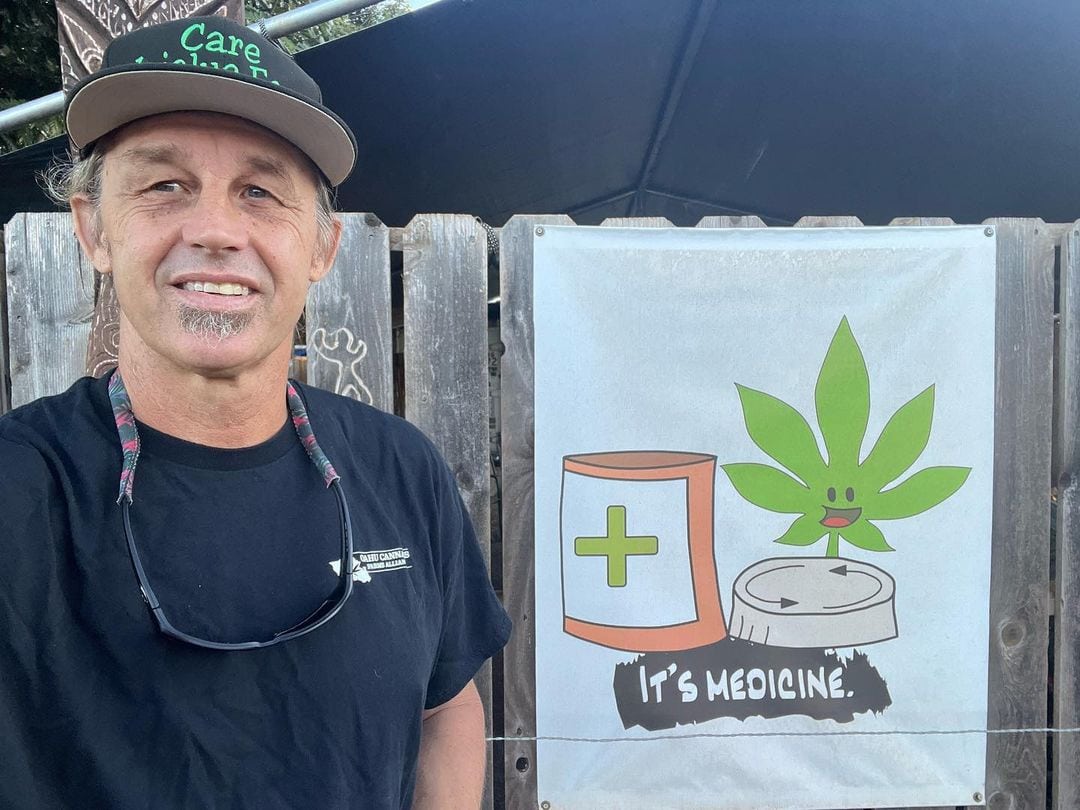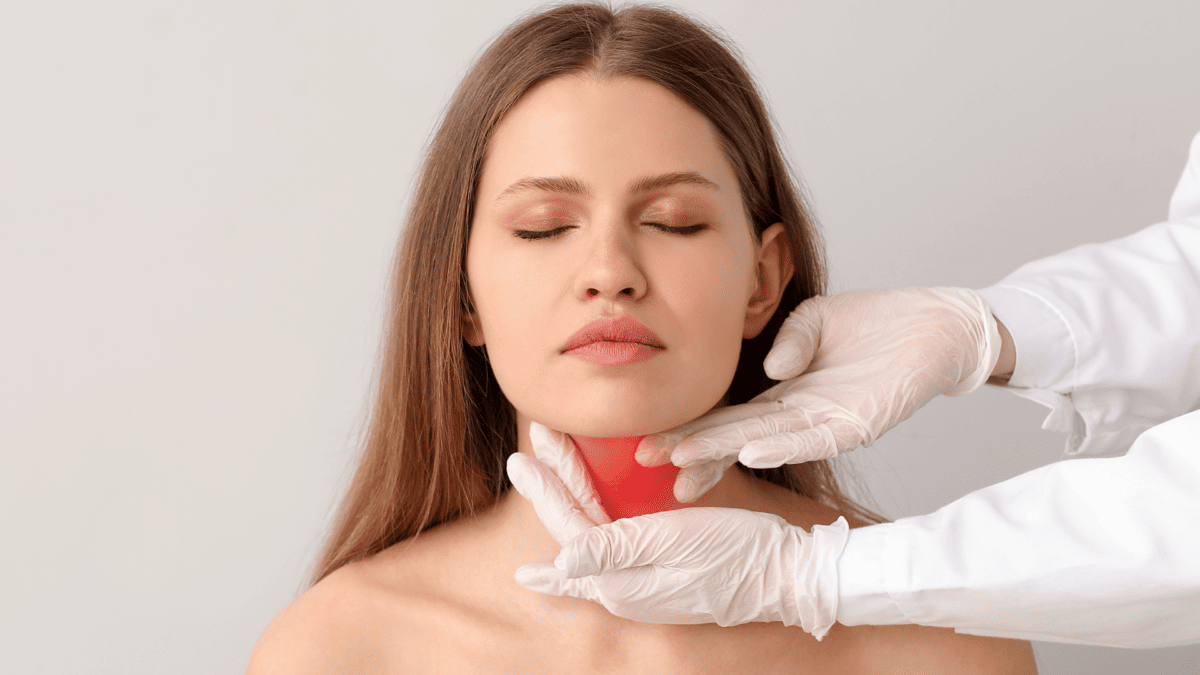National Grief Awareness Week takes place each year to provide a dedicated period for individuals, communities, and organizations to come together and acknowledge the varying aspects and complexities of grief. Grief is a natural response to loss, or anticipatory loss, that should be met with understanding and support. This week brings awareness to that and serves as a reminder to address each other with compassion.
In October, Realm of Caring founder Heather Jackson sat with Dr. Cristi Bundukamara (Dr. B) author of Pain & Purpose: My Journey to Mental Strength to discuss the complexities of grief and how one may find purpose through the unimaginable pain. Dr. B is a psychiatric nurse practitioner having earned her doctorate in healthcare education. She is the owner of Mentally Strong Psychiatric Clinic and the creator of the Mentally Strong Method. Dr. B discusses how she finds purpose having endured the devastating loss of her two children, Reggie and Miah, diagnosed with the same incurable, terminal disease that her husband Bundy is living with, Dentatorubral pallidoluysian atrophy (DRPLA).
Heather Jackson: For me there were two major themes, first is that each person should choose to find purpose in our pain. And the second emergent theme is that we all have this deep within, amazing ability to overcome life’s worst moments. And if that’s not encouraging, I don’t know what is.
Dr. B: I don’t know if it’s finding purpose in the actual pain, but it’s not giving up on your life, your purpose. Sometimes pain cannot be rationalized, explained, given purpose. Sometimes someone loses a child to cancer and then they spend their life raising money for cancer research and, honestly, I want nothing to do with DRPLA. It feels hopeless. So, the purpose doesn’t necessarily need to come in the pain. But, the point is not giving up on your life, your purpose. Because I do know that we all have a purpose and sometimes pain derails us from that and makes us want to give up on that.
HJ: For sure, it can be consuming and blinding and doesn’t really allow you to move forward, which is why you’re one of my real life heroes. Because you’ve dug really deep and I want to get to some of how you did that, but I think that the book is extremely vulnerable. You don’t often read when people call out themselves, their spouses, their kids – and not call out but just be like, look this is the raw, honest, transparent book of our life. And it’s beautiful, and it’s brutal, and I’m really curious as to why you wanted to share it. What inspired you to write the book? What’s the purpose? Aside from it being a part of your healing journey, that I know you’ve been a part of lately, and I have been able to come alongside occasionally for that, but why? Why did you write it?
Dr.B: I’ve been in, and I think a lot of parents that are in the Realm of Caring, are in a constant fight or flight. And the initial reaction was still in that fight, I have to do something, I have to help somebody else because I wasn’t able to help my own child. So I think it’s just now that I’m trying to get out of that fight or flight. But it’s hard, it’s an addiction. I’ve always been like that – whatever is happening, it’s got to help someone else. And I’m not a writer. The first version of the book was evident of that. It took seven years and a writing coach to get to the first fifteen chapters. But I’ll tell you that the last chapter was written in three hours, and it was 100% all me and it just came out. It’s part of the healing process, not just healing, but how am I going to tell my story? There was a version in between that abruptly ended at Miah’s death and I was like, every good story has a happy ending and when you look at my life from the outside – there’s no happy ending there. And so I sat down to write that last chapter and thought, but I do have a happy ending, there is an eternal relationship. It’s part of my character, whatever is going on in my life I just have to figure out how to reframe it.
HJ: So I know it’s a part of your personality, but what really struck me over and over again in the book was not just your tenacity but no white flags – there was no giving up. It was another, third theme. Where does that come from? What is your greatest source of inspiration and support? Because, as you mentioned, we serve so many families, my family included, who are just continuously one blow, one challenge after the other and I don’t even know how to do it some days. I don’t know how to get up and put one foot in front of the other. And I haven’t been through what you’ve been through.
Dr.B: I wish I could say God. That’s the right answer. And I have struggled so much with my relationship with God. I remember a book I read, and I don’t remember if it was before Johnny’s death or shortly after Johnny’s death but it was before I was doing my own Mentally Strong Method, and it’s Viktor Frankl’s Man’s Search for Meaning –
HJ: Yes, your book is very reminiscent of that very famous book
Dr.B: And when I picked up that book, if I had known it was about the Holocaust I wouldn’t have read it because I don’t seek out painful things. And one of the things that I will never forget about that book is that there was a time when they thought that they were going to be released. They were in the concentration camps and the spirit was up and people had energy, but that day came and went. And several months after that, many, tons of people died. And he was talking about how the science of losing hope can actually lead to your death. And that hope is a choice. And it’s hard when life keeps hitting you, but I just had known from that point that it’s a choice, everything is a choice. How you respond is a choice – not what’s happening around you. And it’s just what I’ve always done and this is what I tell anyone because I do know that I have a very distinct gift to be publicly vulnerable with my story. That is not everybody else’s purpose. It is my gift. But how you respond to your pain, you have to figure out how you can respond to your pain. Yes, I do believe you’ll be inspired by my ability to do that, but I always tell people that I struggled with depression before I even had a reason to be depressed. Now I have a reason, but it’s not like I was this really mentally strong person before, it’s a choice, it’s constant, it’s hard. There are days when you feel like giving up, and I will never give up but that doesn’t mean there’s not days where I feel like giving up.
HJ: Well can’t we just for the morning? It’s a serious question, can’t we just give ourselves – talking to the families who are in fight or flight 24/7 – can I give myself a morning off from the fight?
Dr.B: Well it depends if your kid lets you. Sometimes, and this is very serious though, you always had that. And now the mornings are literally the hardest times for me. One, my daughter died in her sleep in the middle of the night and the trauma of that morning but also getting up for what? So we might have both types of people here – some that have lost and some whose children are there and they’re struggling – I remember times being irritated that I had to get up because Miah needed me and I just wanted to just lay in bed. So it really depends on if your child will allow you to take a morning off. But that’s why it’s important to schedule them.
HJ: And we can totally do that, we can prioritize ourselves also, which I think is really important and often overlooked and can lead to depression, anxiety, the decline of our physical health, which I’ve experienced and still experience. I think it’s important to figure out somehow, within your community, and even if it’s trading with another parent with a special needs kiddo and trading off and on.
Dr.B: Another thing that I don’t think mother’s do is figuring out what actually fills your cup. Because, you know, we get four hours off but then we’re thinking and we’re depressed and we’re worried about this and we didn’t actually do anything that fills our cup. And it’s different for everybody, people used to say “go get your nails done”. To me that’s another responsibility. I don’t like getting my nails done, I do it because I want my nails to look okay but that doesn’t fill my cup. I was almost turning 50 before I was trying to figure out what I actually like to do. People would say “go exercise” and this and that but there’s really only two types of exercise I like to do. So why was I wasting my time with all of those other ones? I don’t like the exercise but everyone is saying that’s what is good for depression so that’s what I’m doing. And movement, and it doesn’t have to be intense exercise, but movement, which we talk about in ceremony, we talk about this when we go to sweat lodge, movement is more than just exercise, it’s sitting and sweating. It’s going through ceremony and trying to move things out of the body. Processing the reality of the life of having a disabled child or adult, there’s this constant fear of something happening to them. We have to process that and minimize it. You don’t just act like it’s not a reality, because it is a reality for many people that their child could die. I remember several kids in the community I could not attend their funerals, and this is when my children were alive, it’s just because this was my biggest fear and I was so sorry I could not be there for them. And you are always right there for people in that moment and I know it’s a fear for you too. So that takes strength to be able to be there for other people. It’s just figuring it out for yourself, what actually fills your cup and making sure you take that time.
HJ: That’s such a great, practical tip. I want to dig in a little bit more – I remember in the beginning your mission was to cure DRPLA, you were going to find a cure. And I noticed that at some point there was this transition into maybe not even acceptance but your goals shifted a little bit. Maybe the goal was mental strength and teaching others how to do that. Am I correct in your shift and that the shift happened? And why do you feel like you made the shift? And then how do you define being mentally strong?
Dr.B: Managing or regulating yourself and being able to find balance. Joy and pain can coexist and figuring out how to do that practically. We all have pain. I took a personality test that pretty much says I’m a rebel, so even in the beginning where, you know this is a terminal condition, there is absolutely no cure, there’s 20-50 years of research that would have to happen to cure this, I didn’t believe it. And this also goes to my relationship with God. I was like nope God is going to provide something and I’m going to do the actions and I’m going to fly to Canada and fly to Mexico and I’m going to see all of these specialists. I’m going to pick up my family and move to Colorado. And when Reggie died, Reggie’s life was so traumatic. He was in and out of the hospitals, ICU’s, multiple people told me he was dying and I was like no, no, no. And when he did die, it was like, okay, I can do this. But I’m not going to miss opportunities to just be present with Miah. And I’m not going to make her do all of these stupid diets and not eat chocolate cake and I did everything all the ketogenic stuff with Reggie and I think that’s why Miah’s death has just been so much harder, spiritually harder. She was not sick. I don’t think she’s ever spent the night in the hospital, she’s done EMU’s overnight but she was not sick. This was not supposed to happen. I thought I had a lot of time left. This year and a half since her death has been an intense spiritual journey. Because you just want to say “F you, God”.
HJ: I’m glad you’re really honest about that and the spiritual struggle that you’ve had and being able to be honest about raising a fist and saying this doesn’t make sense. I think that is a very common experience. It is one of my greatest honors, to watch you continue to put one foot in front of the other over all of these years and be focused on continuing to help the community and help people, not with some pie in the sky mentally strong like “I’m always okay and my energy is always high” that’s not what you’re teaching and that’s not reality. The practicality that you teach and what you do is so important. What’s alive for me and a lot of our community is this anticipatory grief and I wanted to talk with you a little bit about that. I think about your husband, Bundy, and he’s living with DRPLA, and for those who don’t know DRPLA is a neurodegenerative disease and so he will pass away, and so your son Reggie, your daughter Miah and now your husband, Bundy. There is still this anticipatory grief and for those of us who still have kids with life limiting conditions and our friends kids are passing away and it could happen to us at any point and so I’m wondering what advice you would give to those of us who have this pain present now, daily, who it’s still the first thing we do in the morning is check on our kids in the morning to make sure they are okay, how do we metabolize that or how do we work through the anticipatory grief?
Dr.B: As a professional we have taken your spiritual self out of the equation of mental health and it’s such a huge part, especially in the process of death. And I challenge everyone, regardless of where you are on your spiritual journey, whether you have a strong belief system or don’t believe in God, there is something outside of us. There are other dimensions, there are eternal relationships, and this is one of the things I say all the time – make relationships a priority because they are the only thing that is eternal. How you believe that plays out, it’s not as important as believing that it plays out and that death is not the end and figure that out. Have a pursuit of an authentic spiritual relationship, because that is what will bind you to your child eternally. And that is what I talk about in the last chapter, I accepted Christ many years ago and I was a born again Christian and I still believe in the Christian faith but when Reggie died he spoke to me, and he said “Momma, I’m okay, daddy’s okay, Miah’s okay”. He even said to me “you think you’re so smart” and I rationalized that in my Christian doctrine of God spoke to me in Reggie’s voice, I rationalized it. When Miah died I was like, I’m not taking this and the first time Miah came to me I was ready to be open to that and to experience that. And so, an authentic spiritual relationship.
HJ: I really love that because it also gives us something to do now. It’s not as if we’re waiting for this inevitable thing to happen, we can do something now. We can work on this authentic spiritual relationship. It’s actually in the epilogue, but I wanted to end with the beginning in mind. It’s a question you ask the reader and I wanted to ask the same question, what kind of joy, peace, or happiness are you longing for? And at this point in your journey, with everything you’ve been through and everything that will come, what kind of joy, peace, or happiness are you longing for?
Dr.B: I think I find joy and happiness and it’s a choice and sometimes you have to pursue it, peace I’m still working on. Really understanding that the present moment is what we have and I heard someone else say depression is thinking about the past and anxiety is worrying about the future and I spend a lot of time in those two places when I should be enjoying the moment. I do not regret, I made a lot of happy moments with my kids and we did a lot of things. I was just looking at the Hawaii trip and with Miah for her 21st birthday we spoiled her rotten at Disney World and we did, we pursued those moments of joy and happiness. In the midst of it, of raising terminally ill children, you do have to pursue those moments of happiness and joy. But also choosing to find peace and peace is only in the moment.
HJ: I could not agree more, a really big download for me these last couple of years as someone who is really driven and is always focused on the future and what I could have done better. It’s the only place to be. It’s interesting how everything is vying for our attention to go back or go forward. The myth of normal.
Dr.B: We think that peace is a destination and the only place that you have peace is in the moment.
View the entire interview on Realm of Caring’s Facebook Page
For additional resources, please visit MentallyStrong.com













